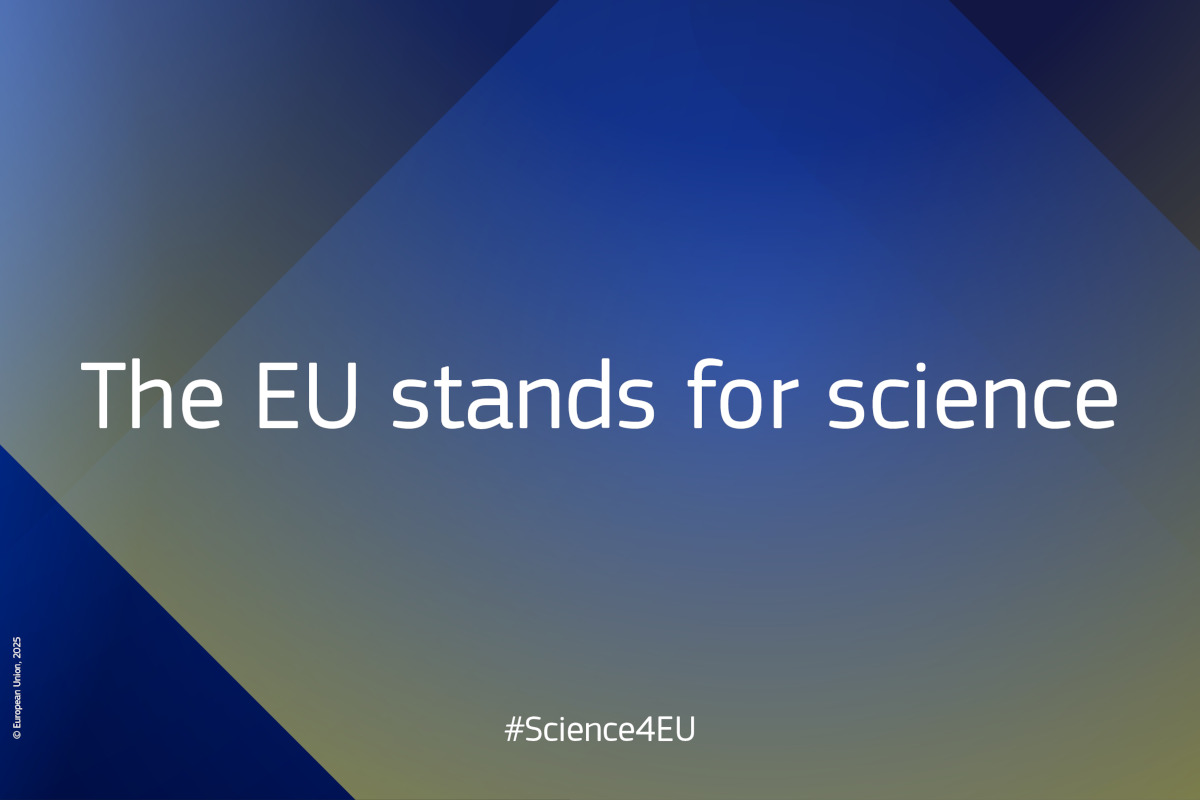While Europe’s green agenda faces new pressures, sustainability leader Sandrine Dixson-Declève outlines why sustainable investment remains vital for economic strength, planetary health and future resilience.
Special series

Science4EU
The Science4EU campaign shows how the EU stands for science. It shines a spotlight on the scientists, researchers, and innovators working with EU support to improve our lives and shape a better future for everyone.
Do you also stand for science?
More stories
Most popular
-
1By Andrew Dunne
-
2By Tom Cassauwers
-
3
-
4
-
5By Michaela Nesvarova
Top videos
Rethinking green investment for Europe’s next chapter: a stakeholder’s vision
23 June 2025
Smarter science: staying one step ahead of the next pandemic
18 June 2025
Past articles
High-tech turf that combines real grass with synthetic microfibres and cork is helping reduce injuries and keep pitches playable during the heavy rainfall that has marked the European Championships in France this month.
Software that uses statistics to adapt to your learning style and greater insight into how the brain processes ambiguity and nuance are helping scientists design new ways to learn a foreign language.
People don’t know that hydrogen-fuelled vehicles and home heating systems are already on the market, and that is the biggest obstacle to their uptake, according to Bart Biebuyck, the recently appointed executive director of the Fuel Cells and Hydrogen Joint Undertaking, a public-private partnership between the EU and the fuel cell and hydrogen industries.
A typical flight from Brussels to Tokyo takes over 11 hours – but imagine if that time was shaved to just two and a quarter.
Software that uses statistics to adapt to your learning style and greater insight into how the brain processes ambiguity and nuance are helping scientists design new ways to learn a foreign language.
Researchers are studying the evolutionary changes in human jaws to better understand the forces at play, and their work could help improve dental treatment and even regrow lost teeth.
Humans have always looked for deeper meaning in imagery; from Disney films, to religious iconography, and the Mona Lisa’s crooked smile. But there is, in fact, a pattern hidden in every digital photograph and video frame — image fingerprints that are being put to novel uses in social media, mobile authentication and criminal forensics.
The bewildering number of options we face when buying a single food product may turn out to be thwarting a natural body mechanism that regulates how much we eat.
The sooner-than-expected discovery of gravitational waves, announced in February, has given a new impetus to scientists in the field, who are now working to make sense of what it means not only for their research but also for our understanding of Einstein’s theory of general relativity.
Radiation from hospital scans and long-haul flights could be linked to a small but measurable increase in the risk of cancer, high-capacity genetic testing is revealing.
Is consumer choice making you fat? The bewildering number of options we face when buying a single food product may turn out to be thwarting a natural body mechanism that regulates how much we eat.
Europe is taking a leading role in efforts to help agriculture, utilities and urban planners adapt to climate change as the floods, droughts and heatwaves that have been predicted for decades start to become a reality.
After a natural disaster strikes, emergency workers can often struggle to cope with destroyed buildings obstructing routes to injured people, fires engulfing entire forests at a bewildering rate, and storms blinding search and rescue operations.
While farmers often turn to pesticides and herbicides to get as much produce as possible from their land, there’s something new on the menu that could employ nature’s own resources instead.
By mimicking the ways that queen bees vibrate, scientists have created robots that can fool bees into accepting them as members of the hive, and the results are giving beekeepers new insight into population behaviour.
Horizon pulls out its magnifying glass and takes a look at the bizarre world of insects.
By cooling atoms to ultra-cold temperatures, researchers can watch interactions in slow motion and the results are giving them a new perspective into the behaviour of matter at the quantum level.
Europe’s waters have never been busier. Between fishing boats, tourist cruisers, and underwater turbines, marine habitats around the continent have never before needed a more watchful eye.
Research that includes input from communities and people working in areas affected by climate change should provide critical input into the sixth assessment due to be undertaken by the Intergovernmental Panel on Climate Change (IPCC), climate expert Dr Debra Roberts explained on the sidelines of the Adaptation Futures 2016 conference in Rotterdam, the Netherlands, on 11 May.
With warmer winters and drier summers, climate change might even be having an effect on your favourite bottle of wine.




























